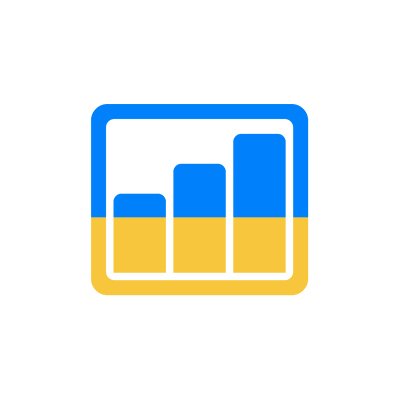Several thousand relevant keywords have been collected for your site. Your list may have been compiled by researching keywords for which your site already ranks.
It is also possible that you have checked your competitors’ keywords using popular keyword tools such as SEMrush and Ahrefs. It’s now time to build a content strategy based on those keywords.
Clustering keywords, or simply grouping keywords, become useful in this case.
Semantically-related keywords can be grouped, allowing you to organize your site into logical content silos or keyword clusters. You can gain more traffic from Google by following an approach like this.
When you’re trying to group thousands of keywords manually, it can be quite challenging. To make that process easier, you can use a few tools.
I have compared five of the best tools for grouping SEO keywords.
Content Outline
6 Best Keyword Clustering Tools 2026
Let’s talk about some of the best keyword clustering tools now:
1. SE Ranking
SE Ranking includes keyword clustering as one of its many features. SE Ranking is undoubtedly one of the best tools for carrying out this task for you.
Possibly the most accurate keyword clustering tool on the market is SE Ranking’s Keyword Grouper.
SE Ranking compares the top ten search results for two keywords during the clustering process. It will group them on the same topic if they have the same search listings, then repeat the process for the remaining keywords.
To enhance clustering accuracy, you can also specify how many similar listings to use, unlike other keyword clustering tools.

It is possible to set the minimum number of matching URLs to 3, which will prevent keyword searches from showing more than three similar URLs.
A fascinating aspect of SE Ranking is that you can specify a grouping. In this case, you can choose the search engine you want, as well as the country, location, and language.
Thus, it is extremely useful for creating keyword clusters for phrases that aren’t in English, which is excellent for multilingual websites.
As a final feature, SE Ranking provides an option to add search volume to each keyword in the cluster. By using this feature, you can see not only the monthly search volume of keywords in the cluster but also an aggregate search volume for the cluster you want to target.
If you want to import data from other sources, you can do so from Google Search Console, Google Keyword Planner, or other SEO tools such as Ahrefs and SEMRush.
Pricing of SE Ranking
You must subscribe to SE Ranking’s paid plan to use its Keyword Grouper. As low as $44.60 per month is the lowest possible price. A separate fee of $0.004 per keyword is also required to use the Keyword Grouper.
According to this example, clustering all 1,000 keywords will cost $4, which is neither cheap nor overly expensive. It costs an extra $0.005; however, if you want to know the search volume for every individual keyword.

If you upload your keyword list (for example, from another SEO tool such as Ahrefs), which already includes search volume information, then this add-on isn’t necessary.
2. Serpstat
Another leading SEO tool, Serpstat, provides features that help you create keyword groups and clusters to improve the structure of your site’s content.
Using a list of keywords, Serpstat will create clusters that include long-tail and short-tail keywords. To ensure accurate results, semantics and keyword intent, as well as the top 30 search listings, will be taken into account during the creation process.
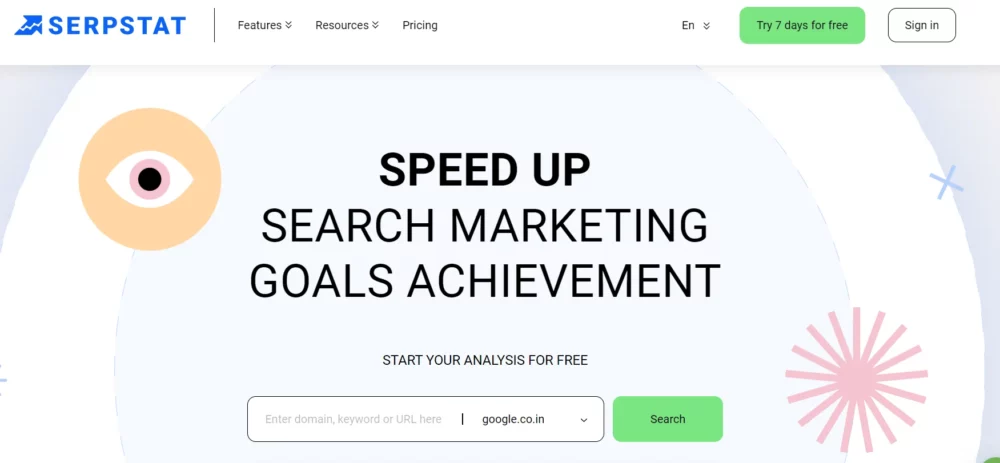
Additionally, clustering settings can be customized if you choose weak, medium, or hard clustering, for example. Despite the lower degree of customization than SERanking, you can still change the results to suit your needs.
I find that the best feature of Serpstat is that it can analyze your published posts and create keyword groups relevant to those posts. By avoiding cannibalization issues, you can construct an effective site structure.
Pricing of Serpstat
The keyword clustering tool is available to all Serpstat plans. Customers can choose from four different plans provided by Serpstat:
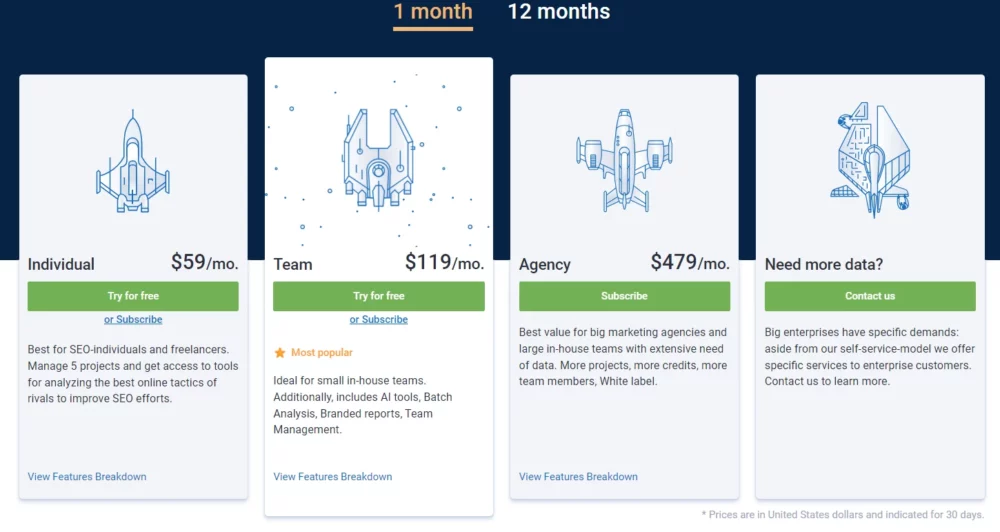
- Individual – $59 per month
- Team – $119 per month
- Agency – $479 per month
The Individual plan allows you to cluster up to 1,500 keywords. As you upgrade, this number will rise. In addition to keyword research, backlink analysis, site audits, rank tracking, and more, all plans include other SEO features.
According to my experience with keywords, 1,500 per month is too few, especially if you have a long list (one short-tail, general keyword search, such as “bicycle,” could produce thousands of variations.)
You should, therefore, select at least the team plan (6,000 keywords per month). Otherwise, the quota should only be used on specific keywords that describe your niche.
You may be required to pay additional fees if you require search volume data.
3. Surfer SEO
Using Surfer SEO, you can optimize your content for search engines. The developers of the software have recently introduced a feature allowing users to create topic clusters using a fully automated process. Using this keyword clustering tool is the most useful thing I do as a Surfer SEO customer.
Let’s see how it goes.
You need to start by inserting the main keyword. It should be broad and general. In my opinion, your website plans to cover a major topic or category extensively.
Your content planner will be ready in a few minutes, thanks to artificial intelligence. The keyword “artificial intelligence” is associated with 159 clusters on Surfer SEO.
The topics in Surfer SEO are sorted by relevance by default. Search volume is also available as a sorting option.
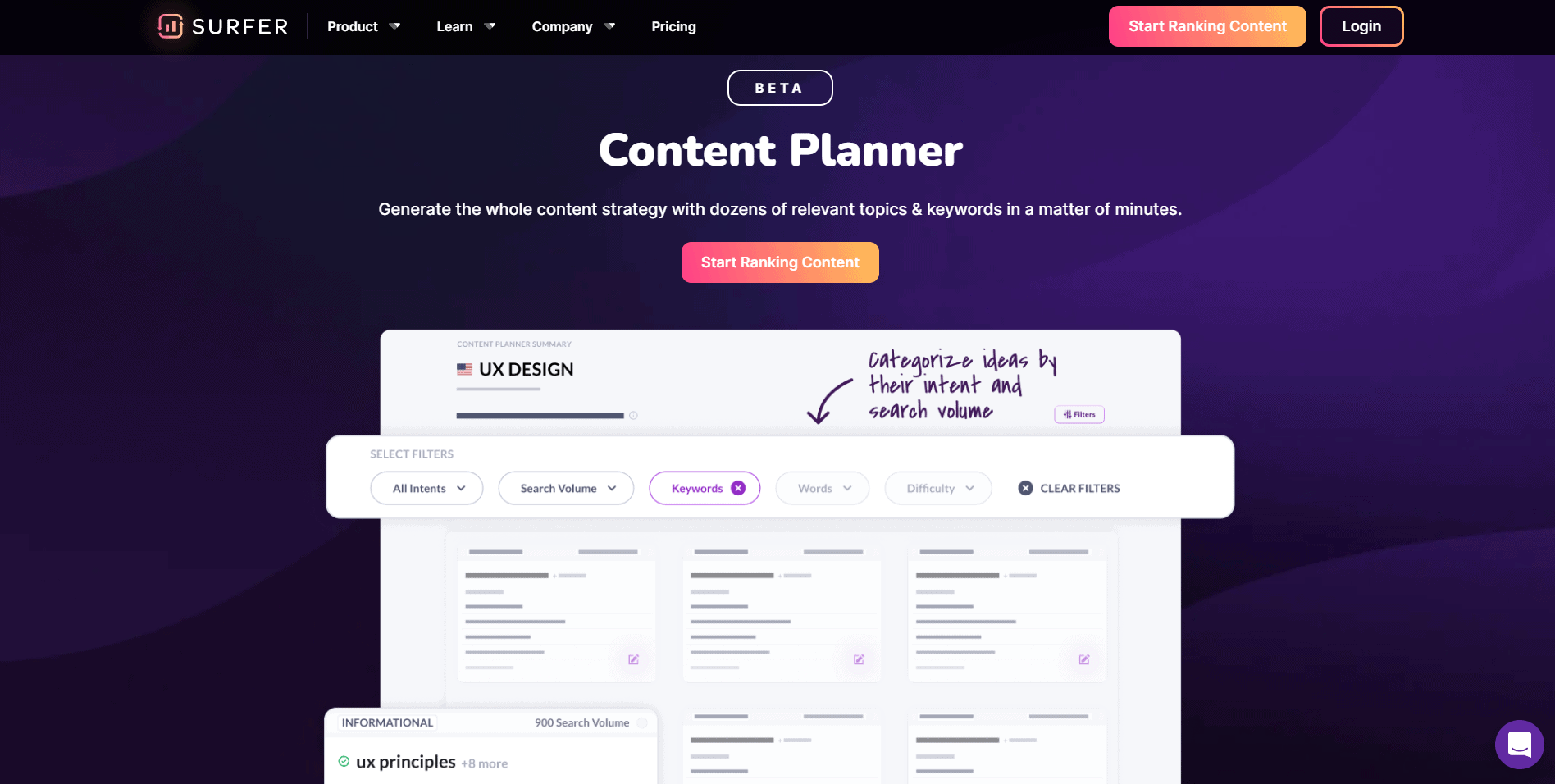
There are so many topics that you may feel overwhelmed by. You can, however, filter your results based on your search intent (customer investigation, local, shopping, and informational.)
Since the other two do not apply to my niche, I tend to target clients with “customer investigation” and “informational” skills.
Data on monthly search volumes will be attached to each keyword. SE Ranking and Serpstat are free.
Surfer SEO does not disclose how its keywords are clustered. Results appear relevant, however. The most popular keyword for that topic (with the highest search volume) will be used for the topic name.
A content editor can then be created to optimize that along with other keywords on the topic.
This tool has only one disadvantage – external data cannot be imported. Surfer SEO’s keyword tool offers decent data, which you should use. You may also find more keywords at Ahrefs. Still, I consider the topic clusters Surfer SEO provides to be more than adequate.
Pricing of Surfer SEO
Surfer SEO plans include the content planner. Prices start at $89/mo. Surfer SEO also comes with fantastic features such as a content editor, SERP Analyzer, and many more.
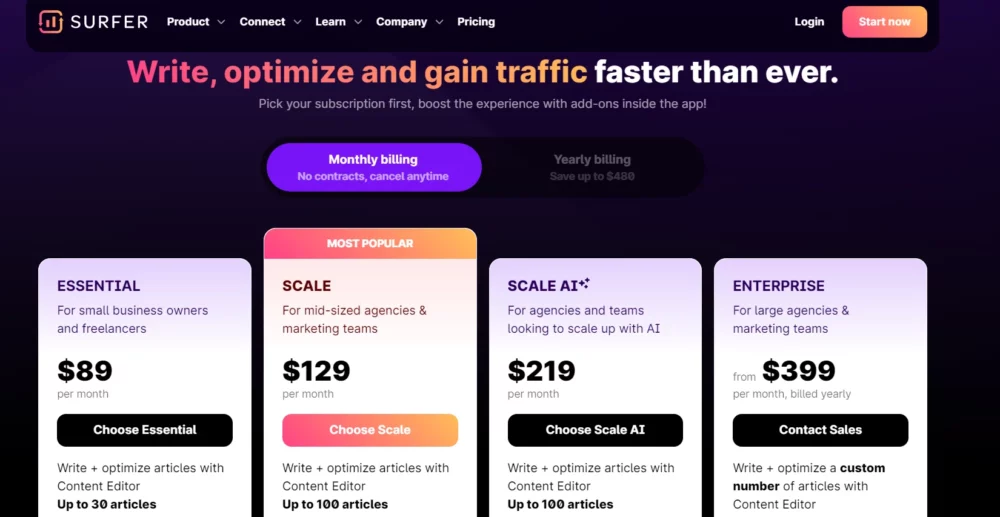
No hidden fees apply. You only pay this amount. A keyword clustering plan starting at $89 per month is more than sufficient if that is all you need. There is no free trial for Surfer SEO. Nonetheless, you can get your money back within 7 days.
4. WriterZen
Content optimization is a highly competitive industry, and WriterZen is a new entrant. The tool not only provides an excellent keyword clustering tool with extremely generous resources but also aims to help content writers optimize their content.
Using this feature is straightforward. Use it as you would any traditional keyword tool.
The topic clusters will appear after a while.
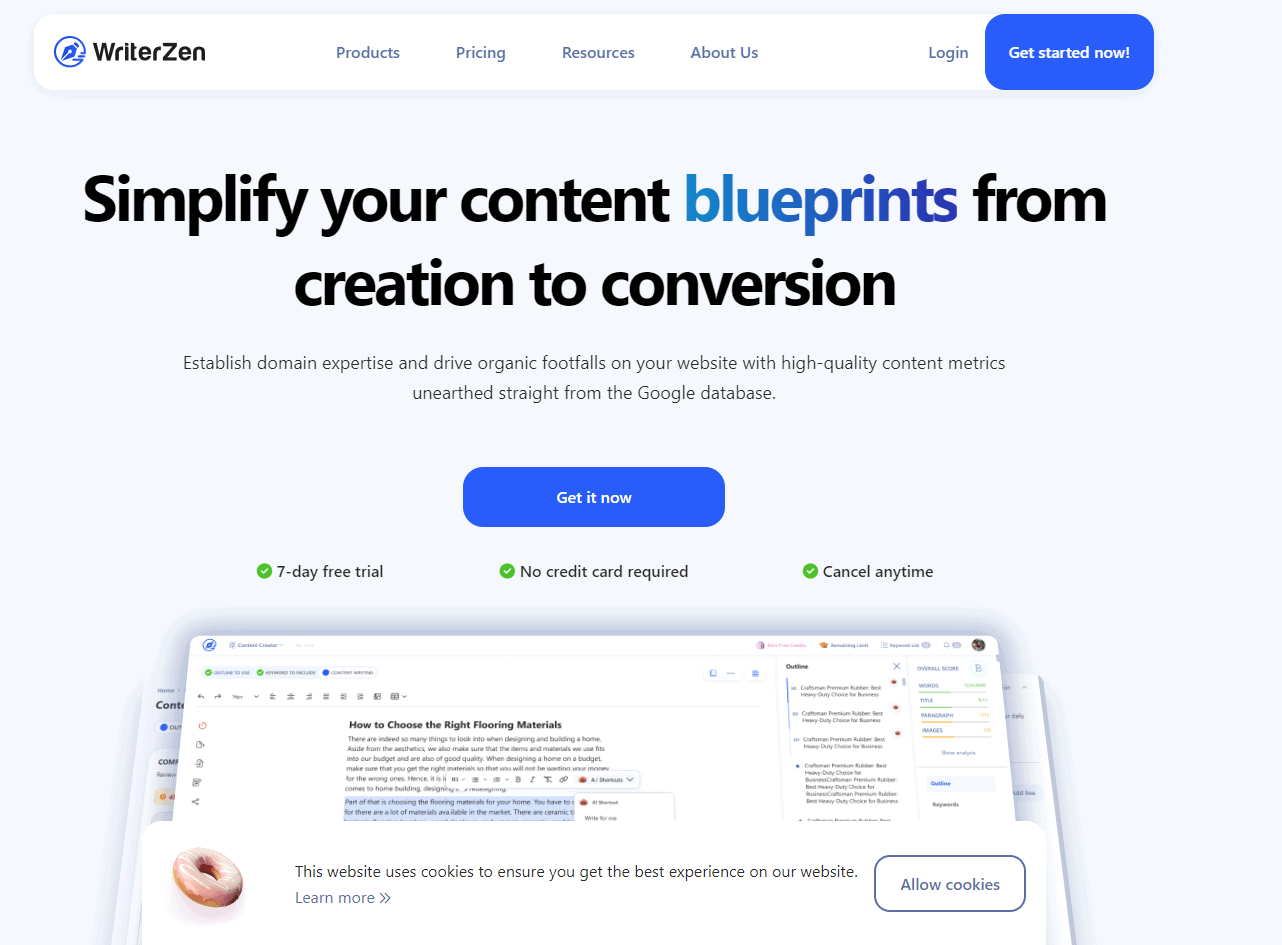
Since WriterZen compares results from Google SERPs with other keyword grouping tools, it’s not surprising that the results are quite accurate.
There are a lot of great features in this package, including keyword trends, monthly search volume, PPC competition, CPC, and Allintitle ratio for each keyword in each topic.
Unlike Surfer SEO, however, this tool does not allow you to import your keywords for WriterZen to group them for you. Due to WriterZen’s limited keyword data, the number of topics may be a bit limited.
Pricing of WriterZen
Every WriterZen plan includes keyword clustering. The following are the two paid plans available:
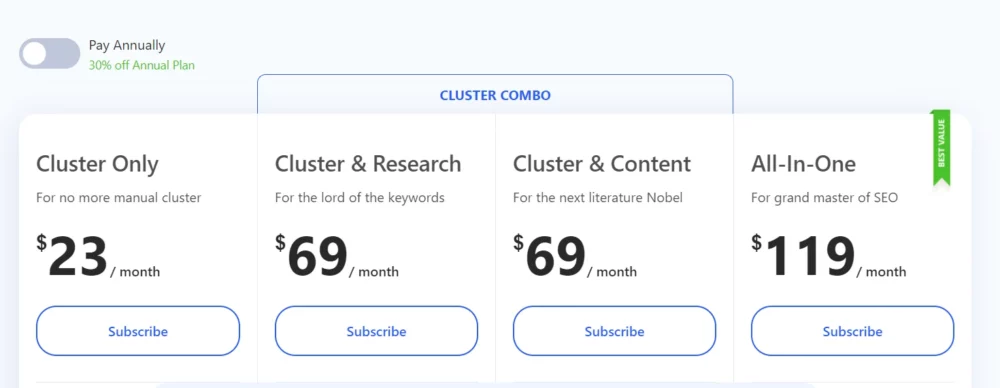
Cluster Only Plan ($23/month)
- Features:
- 30,000 keyword credits per month.
- Import up to 20,000 keywords.
- Create up to 50 keyword lists.
Cluster & Research Plan ($69/month)
- Features:
- 30,000 keyword credits per month.
- Import up to 20,000 keywords.
- Create up to 50 keyword lists.
- Extras:
- Unlimited keyword lookup.
- Keyword Golden Filter.
- Revenue forecast.
Cluster & Content Plan ($69/month)
- Features:
- 30,000 keyword credits per month.
- Import up to 20,000 keywords.
- Create up to 50 keyword lists.
- Extras:
- 100 content briefs per month.
- Unlimited AI writing.
- Unlimited plagiarism check.
All-In-One Plan ($119/month)
- Best Value Features:
- 50,000 keyword credits per month.
- Import up to 20,000 keywords.
- Create up to 100 keyword lists.
- Extras:
- 100 content briefs per month.
- Unlimited AI writing.
- Unlimited plagiarism check.
- Unlimited keyword lookup.
- Keyword Golden Filter.
- Revenue forecast.
- Unlimited topic lookup.
- 2 extra member seats.
Using the Platinum plan, you can cluster up to 1,000,000 keywords per month. This is more than enough for content marketers.
Creating content briefs and discovering topics are also included in all plans, which can be useful in producing high-ranking content.
5. Cluster AI
The Content Distribution tool Cluster AI only performs keyword clustering for its users. By reducing keyword research time by up to 90%, the company claims its software helps users make better keyword decisions.
Here’s what you’ll have to do.
With Cluster AI, you won’t receive keyword data like with other tools. It will be your responsibility to import the keyword data from third parties.

In the keyword list type box, Google AdWords, Ahrefs, and SEMRush are mostly supported. If you can export the data in a CSV file, you may be able to use data from any keyword tool.
Afterward, you will need to import the CSV file into Cluster AI, choose the country you wish to search in, and add your email address so that you will be notified when the search is complete.
For Cluster AI, the first ten search results will be crawled, and keyword data will be gathered. For keywords that rank for more than three pages, Cluster AI will group them. Consequently, it is more or less the same as SE Ranking and Serpstat.
Cluster AI spent almost an hour processing 700 Ahrefs keywords. A download link will be provided.
The results show the main keywords (serving as the topic name), monthly search volume, and variations for each keyword. You can target the main keyword for this particular blog post since you can rank it for other variations as well.
Results are useful but underwhelming, unfortunately. Other tools offer more detailed information and features, so I expect more from this one.
Pricing of Cluster AI
Cluster AI offers customers a variety of plans.
- Hobbyist – $39 per month
- Consultant – $89 per month
- Team – $179 per month
- Team+ – $249 per month
- Agency – $389 per month
- Enterprise – $699 per month
There is a single feature in the tool for all plans, which means they all have the same features. Plans with more resources will be able to cluster keywords more effectively. This will result in lower costs per keyword.
Users on the Agency plan, for example, can cluster up to 50,000 keywords per month. Keywords cost $0.008 each.
Cluster AI doesn’t offer the best value for money based on its pricing. They are more expensive than most of their competitors, while their features are limited. Hence, using another tool, such as SE Ranking, would be a better option at this point.
6. Keyword Insights
The Keyword Insight tool is an essential tool in SEO, specializing in uncovering and analyzing keywords for digital marketing strategies.
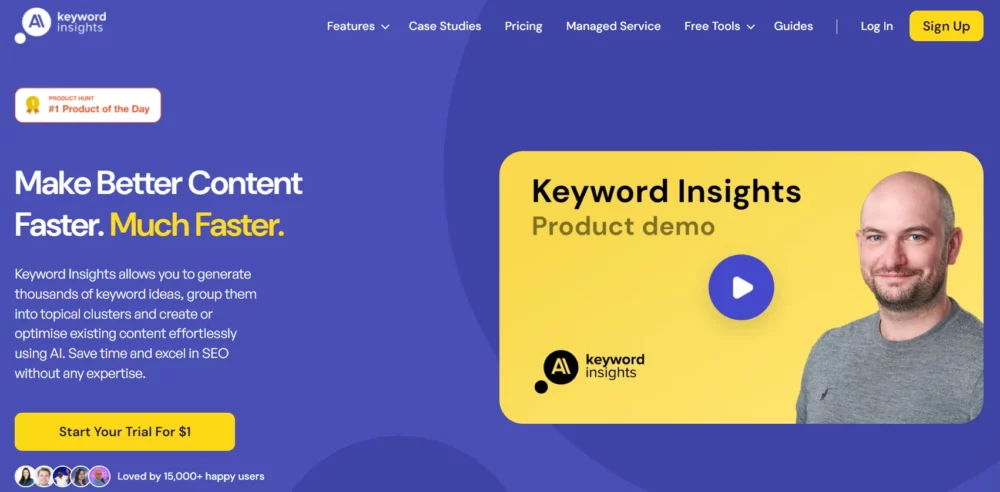
It stands out by offering deep insights into search volumes, trends, and user intent, along with competitor keyword analysis.
This tool is particularly valuable for its ability to generate tailored content ideas and its user-friendly reporting features, making it a go-to resource for optimizing content and improving search engine rankings efficiently.
Pricing of Keyword Insights:
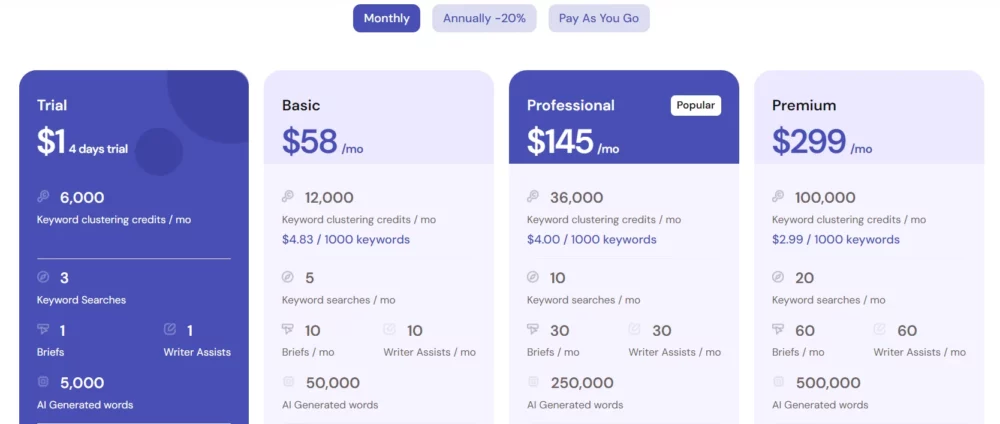
Keyword Insights provides various pricing options, starting at $1 with a 4-day trial for tracking up to 6000 keywords clustering credit and extending to $299 per month for a capacity of 100,000 keywords.
What is Keyword Clustering?
Keyword clustering is an SEO strategy where similar or related keywords are grouped together to optimize web content.
By identifying and combining keywords that share similar search intents or topics, this approach allows for the creation of more comprehensive and relevant content.
Instead of focusing on individual keywords, keyword clustering targets broader topics, enhancing the website’s visibility in search engine results.
This method streamlines content creation and improves the site’s ability to rank for a range of related search terms, making SEO efforts more efficient and impactful.
Now, what is a keyword clustering tool?
A keyword clustering tool is a specialized software used in SEO to group related keywords together automatically.
Instead of manually sorting through large lists of keywords to find patterns and similarities, this tool does the heavy lifting for you.
It analyzes keywords based on various factors like search volume, relevance, and user intent, then organizes them into clusters.
Each cluster represents a set of closely related keywords, often indicating a similar search intent or topic. For instance, keywords like “vegan recipes,” “easy vegan meals,” and “vegan cooking tips” might be grouped together in one cluster.
Benefits of Keyword Clustering
1. Enhanced Topic Relevance:
By targeting a group of related keywords, your content becomes more relevant to the subject, catering to various search queries within a single topic.
2. Improved Search Engine Rankings:
Clustering allows you to optimize your webpage for multiple related keywords, increasing the chances of ranking higher in search engine results.
3. Efficient Content Creation:
It streamlines the content creation process. Instead of creating multiple pages for each keyword, you focus on comprehensive content that covers an entire cluster.
4. Increased Organic Traffic:
With improved relevance and rankings, your site is likely to attract more organic traffic from search engines.
5. Cost-Effective Strategy:
Focusing on clusters can be more cost-effective than targeting individual keywords, especially in competitive markets.
6. Avoids Keyword Cannibalization:
It prevents multiple pages from competing for the same keywords, a common issue in SEO known as keyword cannibalization.
7. Long-Tail Keyword Opportunities:
Clustering often includes long-tail keywords, which are less competitive and can drive targeted traffic.
8. Adaptability to Algorithm Changes:
Content that covers a range of related keywords is often more resilient to changes in search engine algorithms.
FAQs related to the Best Clustering tool
❓Which keyword clustering tools are recommended for SEO in 2024?
Some recommended keyword clustering tools for 2024 include SE Ranking, Serpstat, Surfer SEO, WriterZen, Cluster AI, and Keyword Insights. Each has its own features and pricing.
👀How can keyword clustering benefit content marketers and website owners?
Keyword clustering can help content marketers and website owners create more targeted and relevant content, improve search engine rankings, attract organic traffic, and reduce costs compared to targeting individual keywords.
🧐How does keyword clustering streamline content creation?
Instead of creating separate pages for each keyword, keyword clustering allows you to focus on creating one comprehensive piece of content that targets multiple related keywords.
Quick Links:
- Best Tools to Check Complete Domain Ownership History
- Best YouTube Channel Name Generators
- How to Do Keyword Research? : A Complete Guide
Conclusion: Best Keyword Clustering Tool 2026
I have found something useful in all the tools I examined. But what were the top tools? Well, SE Ranking and ClusterAI were both stellar.
SE Ranking’s Keyword Grouper may be the most accurate tool on the market for clustering keywords.
Using SERP as a basis for creating variations is what makes Cluster AI stand out.
All in all, keyword clusters remain the most relevant way to create pages that are relevant to a search term and may be a better strategy than focusing purely on one keyword.
If combined with a search volume analysis, it’s a powerful content planning tool. Consider the case of extracting thousands of keywords from Google Search Console. Then, you can group them and identify the major groups of keywords.
Now, not every keyword group is created equal. Certain keywords will drive more traffic to your website. By using a keyword tool, you could find out what keyword groups receive the most searches and choose which ones to target.

